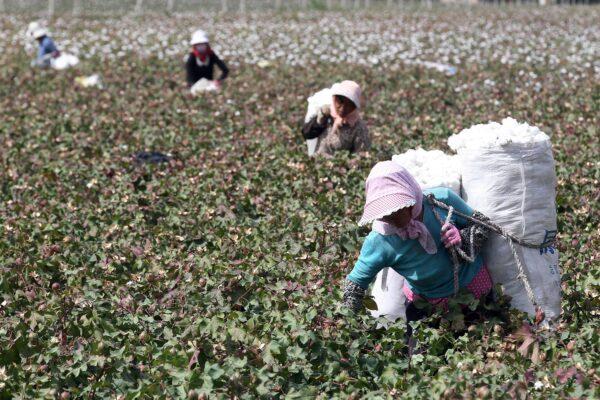The chairmen of a top U.S. congressional body on Oct. 20 demanded transparency from U.S. Customs and Border Protection (CBP) on whether it has blocked imports from companies that have publicly endorsed the use of cotton from China’s Xinjiang region, citing forced labor concerns.
“We are particularly interested in whether CBP has stopped imports from companies that have publicly endorsed the use of cotton from the [Xinjiang Uyghur Autonomous Region] and have advertised its use in their products,” wrote the lawmakers, who were joined by Sen. Marco Rubio (R-Fla.) and Rep. Chris Smith (R-N.J.).
They cited the new NBA season, which started on Oct. 19, saying that they are particularly concerned by “the continued availability of products from the Chinese sportswear companies Anta, Peak, and Li-Ning, which have high-profile endorsements from NBA players.”
The public endorsement of the use of cotton from the Xinjiang region by these companies “warrants special attention from CBP, as it raises specific concerns about the supply chains of these companies,” they wrote.

“We do not want sports stars or other celebrity influencers to knowingly or unwittingly endorse goods made with forced labor or for U.S. consumers to buy these products, which remain available to purchase through Amazon.com and other direct-to-consumer platforms online,” they wrote.
Meanwhile, pressure has mounted on Western fashion brands to divest cotton from Xinjiang—the region is estimated to supply 20 percent of the world’s cotton.
“The effort to consistently enforce laws prohibiting imports made with forced labor is in the economic interests of U.S. workers and consumers and the interests of Uyghurs, Kazakhs, and other predominantly Muslim ethnic minorities in China who face genocide and crimes against humanity,” the chairmen concluded.
Representatives of the CBP and the NBA didn’t immediately respond to a request by The Epoch Times for comment.





